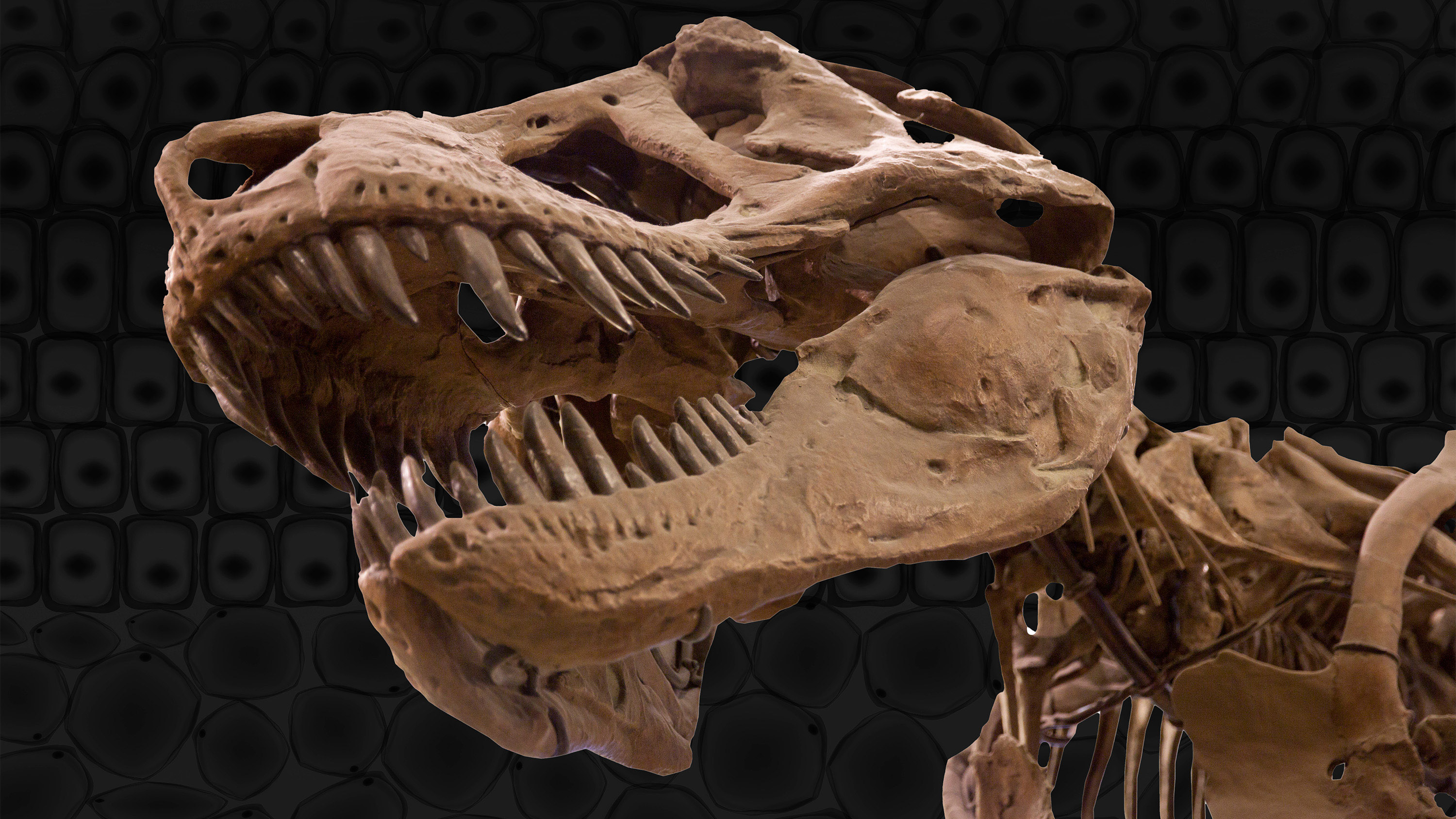Why collagen lasts
MIT study explains why dinosaur collagen survived for millions of years.

Collagen, a protein prevalent in bones and connective tissue, has been discovered in dinosaur fossils as old as 195 million years—even though the normal half-life of the peptide bonds that hold proteins together is about 500 years.
A new study from MIT offers an explanation for collagen’s longevity: A special atomic-level interaction prevents water from breaking the peptide bonds through a process called hydrolysis.
The most abundant protein in animals, collagen is fibrous, made from long strands of protein that intertwine to form a tough triple helix. “Collagen is the scaffold that holds us together,” says chemistry professor Ron Raines, the study’s senior author.
Peptide bonds are formed between a carbon atom from one amino acid and a nitrogen atom of the adjacent amino acid. The carbon atom also forms a double bond with an oxygen atom, creating a molecular structure called a carbonyl group. This carbonyl oxygen has a pair of electrons that don’t form bonds with any other atoms but can be shared with the carbonyl group of a neighboring peptide bond.
Because this pair of electrons is being inserted into those peptide bonds, water molecules can’t also get into the structure to disrupt the bond.
“Collagen is all triple helices, from one end to the other,” Raines says. “There’s no weak link, and that’s why I think it has survived.
Keep Reading
Most Popular
People are using Google study software to make AI podcasts—and they’re weird and amazing
NotebookLM is a surprise hit. Here are some of the ways people are using it.
This AI-generated version of Minecraft may represent the future of real-time video generation
The game was created from clips and keyboard inputs alone, as a demo for real-time interactive video generation.
Why AI could eat quantum computing’s lunch
Rapid advances in applying artificial intelligence to simulations in physics and chemistry have some people questioning whether we will even need quantum computers at all.
AI can now create a replica of your personality
A two-hour interview is enough to accurately capture your values and preferences, according to new research from Stanford and Google DeepMind.
Stay connected
Get the latest updates from
MIT Technology Review
Discover special offers, top stories, upcoming events, and more.